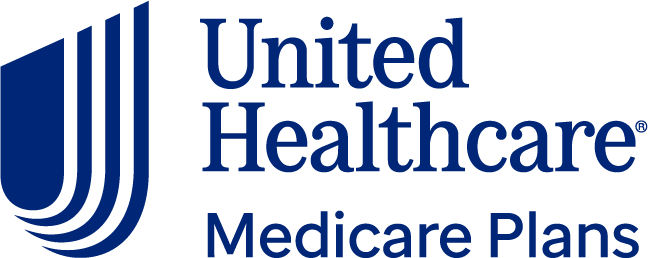Does Medicare Cover Dental Care?
For Original Medicare, generally no. For Medicare Advantage, generally yes. And there are other options to get dental coverage.

Many, or all, of the products featured on this page are from our advertising partners who compensate us when you take certain actions on our website or click to take an action on their website. However, this does not influence our evaluations. Our opinions are our own. Here is a list of our partners and here's how we make money.
Medicare doesn’t cover dental care that’s primarily for the health of your teeth.
Some services that aren’t covered include exams, cleanings, fillings, dentures and extractions.
Medicare does cover certain dental care when you’re in the hospital or before certain medical procedures.
Most Medicare Advantage plans and some Medigap plans offer dental coverage.
Original Medicare doesn’t cover most dental care, such as dental exams, teeth cleanings, fillings, root canals, extractions, dentures, implants and crowns. However, you may be eligible for certain dental services related to surgeries or other general health issues under Medicare Part A — your hospital insurance.
There are several options for Medicare beneficiaries to get additional dental coverage. Most Medicare Advantage plans and some Medigap plans offer dental coverage. You can also buy a separate, stand-alone dental insurance plan.
Shopping for Medicare plans? We have you covered.

4.1
CMS Star Rating
from UnitedHealthcare

3.61
CMS Star Rating
Does Original Medicare cover dental care?
Original Medicare (Parts A and B) doesn’t cover most dental care. In fact, nearly half (47%) of Medicare beneficiaries didn't have dental coverage as of 2019, according to KFF, a health policy nonprofit.
Medicare Part A covers certain dental services that are performed as part of an inpatient stay in a hospital. Some services Medicare would cover include:
Reconstruction of your jaw after an accidental injury.
Tooth extractions required before radiation treatment involving the jaw.
Oral exams before certain procedures, such as kidney transplants or heart valve replacements (but not any dental care or treatment needed as a result of the exam).
Part A would also cover the cost of your hospital stay if you needed emergency or complex dental treatment, but the dental care itself wouldn't be covered.
Does Medicare Advantage cover dental care?
Unlike Original Medicare, nearly all Medicare Advantage plans offer dental coverage: 97% of individual plans have dental benefits in 2023, according to KFF.
Medicare Advantage plans — also called Medicare Part C — are sold by private health insurance companies that have been approved by Medicare.
Individual Medicare Advantage plans' dental benefits may include a discounted fee or certain percentage coverage of teeth cleanings, fillings, routine X-rays and extractions.
Dental services covered, provider networks and out-of-pocket costs can vary significantly between Medicare Advantage plans. There also tends to be a maximum annual dollar cap on what a plan will pay for dental care. If you have specific needs for your dental coverage, make sure the Medicare Advantage plan you’re considering meets them.
Medicare Advantage companies
Get more information below about some of the major Medicare Advantage companies. These insurance companies offer plans in most states. The plans you can choose from will depend on your ZIP code and county.
Does Medigap cover dental care?
Medigap, or Medicare Supplement Insurance, is an additional coverage that can be purchased by Original Medicare users to cover out-of-pocket costs like deductibles, copays and coinsurance for covered services under Parts A and B.
Although the vast majority of Medigap plans don’t cover routine dental care, a small percentage of them offer additional benefits like vision, hearing and dental coverage. This might come in the form of a coverage add-on and not something covered under the standard plan.
Non-Medicare dental coverage options
You don’t have to go through Medicare to get dental coverage. You can enroll in separate dental insurance coverage. Many of the major insurers — Humana, UnitedHealthcare, Aetna — offer dental coverage, and AARP offers member plans through Delta Dental.
These insurance plans operate like most insurance you may have worked with: You pay a monthly premium and have access to a number of in-network dentists for care. Depending on the plan, you may be able to go out-of-network for a higher fee, or you may not be covered for any out-of-network dentists.
Other coverage options include:
A dental discount plan: This is like joining a discount club (like Costco, for instance). You pay a fee to get access to a group of dentists that offer you a discounted rate.
Your partner’s dental coverage: If your spouse or partner has access to dental benefits through their employer, union or veteran's plan, among others, you may be able to enroll as well.
Your employer’s dental coverage: If you’re still working and your employer offers dental benefits, you can enroll in that plan and benefit from group rates.
Shopping for Medicare plans? We have you covered.

4.1
CMS Star Rating
from UnitedHealthcare

3.61
CMS Star Rating
How to enroll in dental coverage
How and when you enroll in dental insurance will depend on the kind of coverage you choose:
Medicare Advantage plan: If you want to sign up for a Medicare Advantage plan that comes with dental coverage, you have three chances to enroll:
During your initial enrollment period for Medicare, which is typically during the seven-month period that includes three months before the month you turn 65, the month you turn 65 and the three months after.
During the Medicare open enrollment period that happens each year from Oct. 15 to Dec. 7.
During a special enrollment period if you qualify due to such circumstances as a move, becoming eligible for Medicaid or getting care in a skilled nursing facility.
Separate dental insurance: You can enroll in a stand-alone dental insurance plan at any time.
Dental insurance through an employer: If you or your spouse are still working and you can get covered that way, you’ll generally have to wait for the open enrollment period (typically in the fall) to opt in to group dental coverage.
Make sure to consider things that might pop up in the future. For instance, if you have concerns about your teeth or your dentist has mentioned the possibility of dentures, look for a plan that offers denture coverage.
People who have dental coverage tend to be happy with it: 84% of consumers with dental insurance are either “Extremely/Very” or “Somewhat” satisfied with it, according to a 2021 survey from AHIP (a national association of health insurance providers). Seventy percent say it saves them hundreds of dollars in out-of-pocket costs, and 68% say it eases their concerns about paying for unexpected procedures.
Get details on Medicare coverage for: | ||









